10 Russian PRISON TATTOO designs & their meanings (PICS)
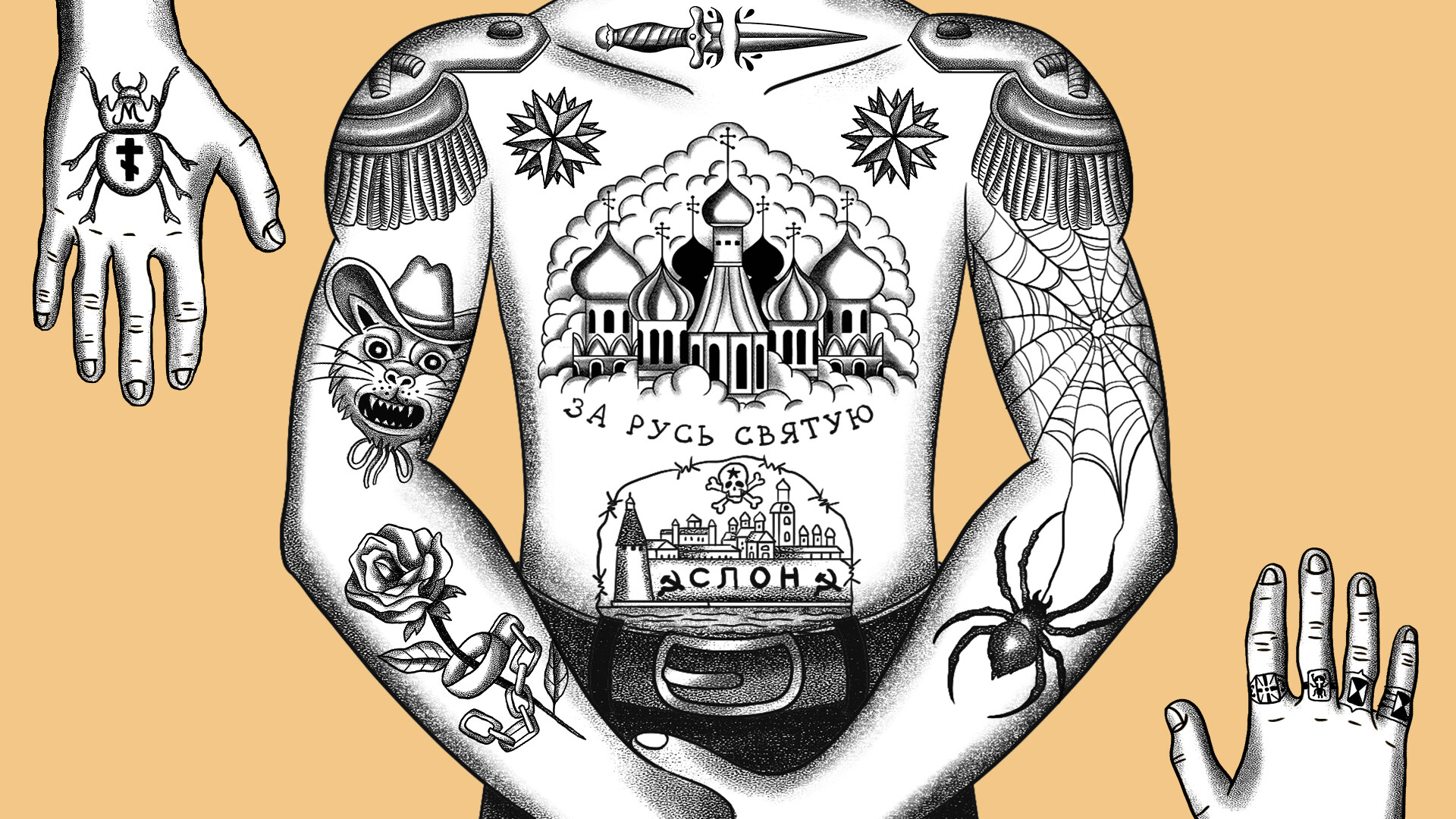
1. ‘Onion’ domes
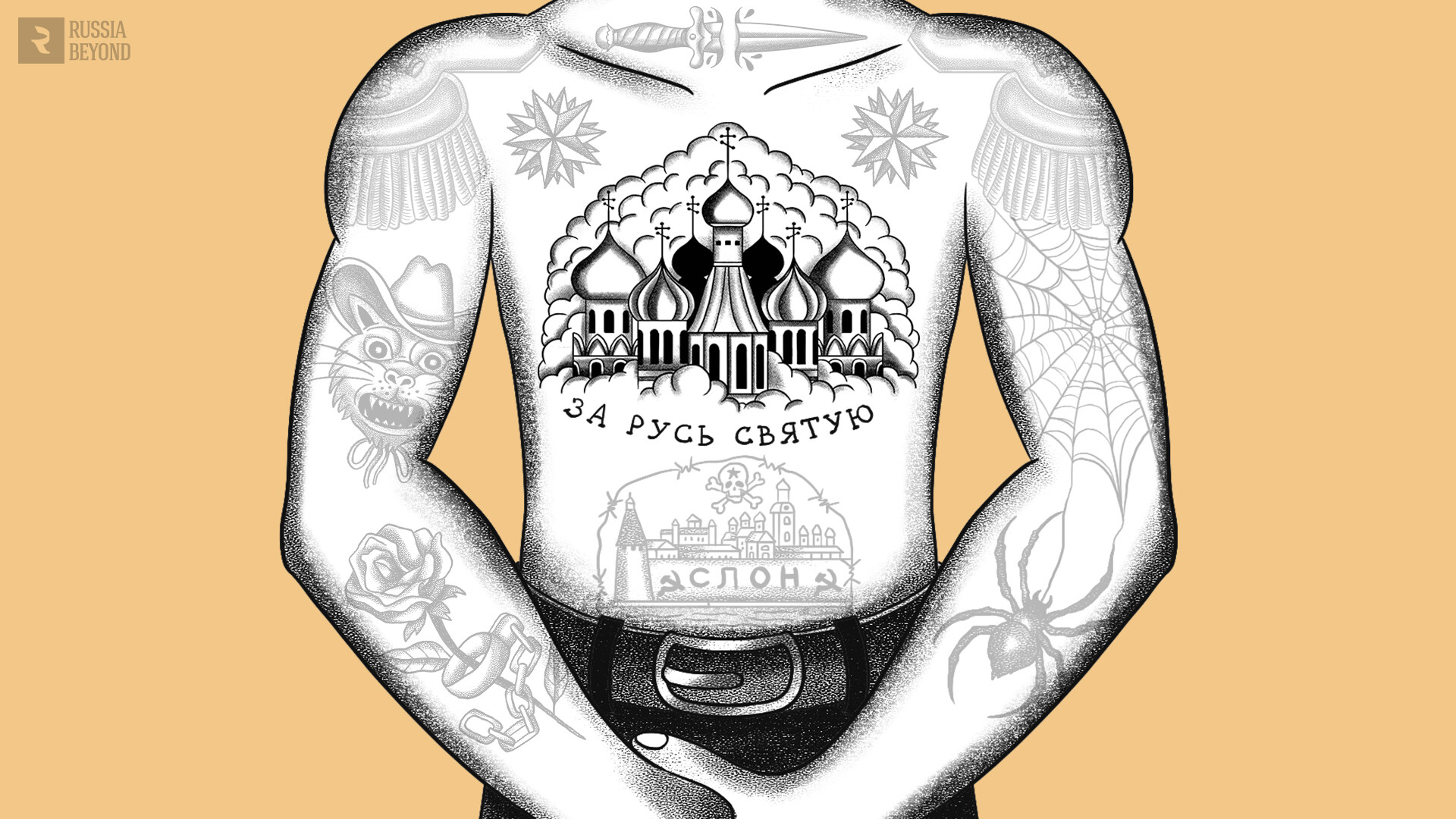
This is one of the most widespread tattoo designs that is easily recognizable in the Russian criminal underworld. Only a convict who has served his time can get a church or a kremlin tattooed on his body. Also, the number of domes is not random; it equals the number of prison terms served by the owner of the tattoo.
2. A spider
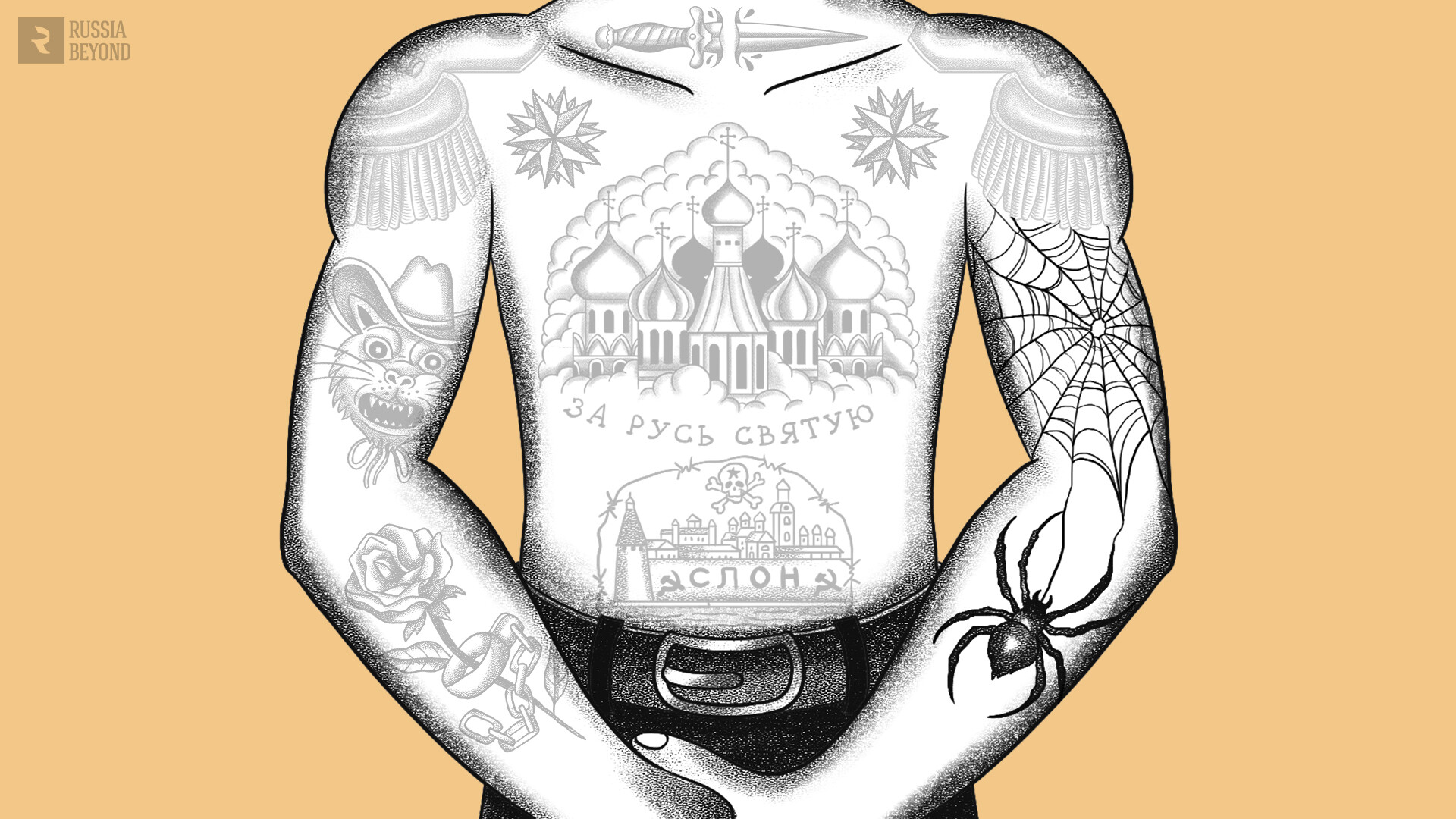
A spider tattoo tells everybody that its owner is a thief. A spider that appears to climb upwards is a message that its owner is dedicated to being a thief and does not intend to cease his criminal endeavors. On the contrary, a spider that appears to descend downwards means that the person has pledged to stop stealing. In certain cases, a spider who appears to be caught in his web might indicate that the person with the tattoo has a drug addiction.
3. A cat
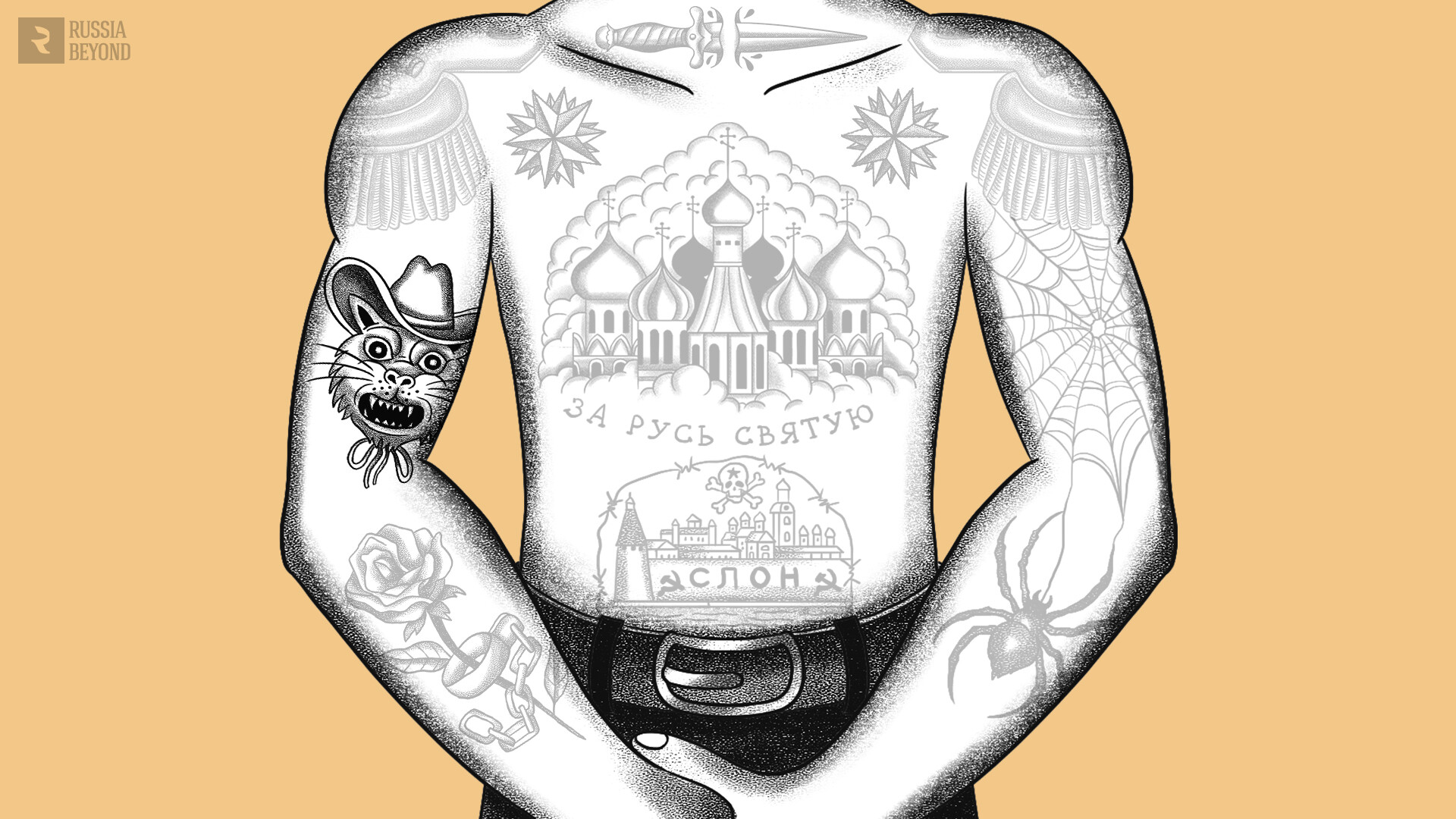
A tattoo depicting a cat is a symbol of pickpocket thieves. The abbreviation ‘KOT’ (‘cat’ in Russian) stands for a slogan that roughly translates as a “native inmate of a prison” (korennoy obitatel t’urmy). A cat holding keys may suggest a burglar.
4. A rose
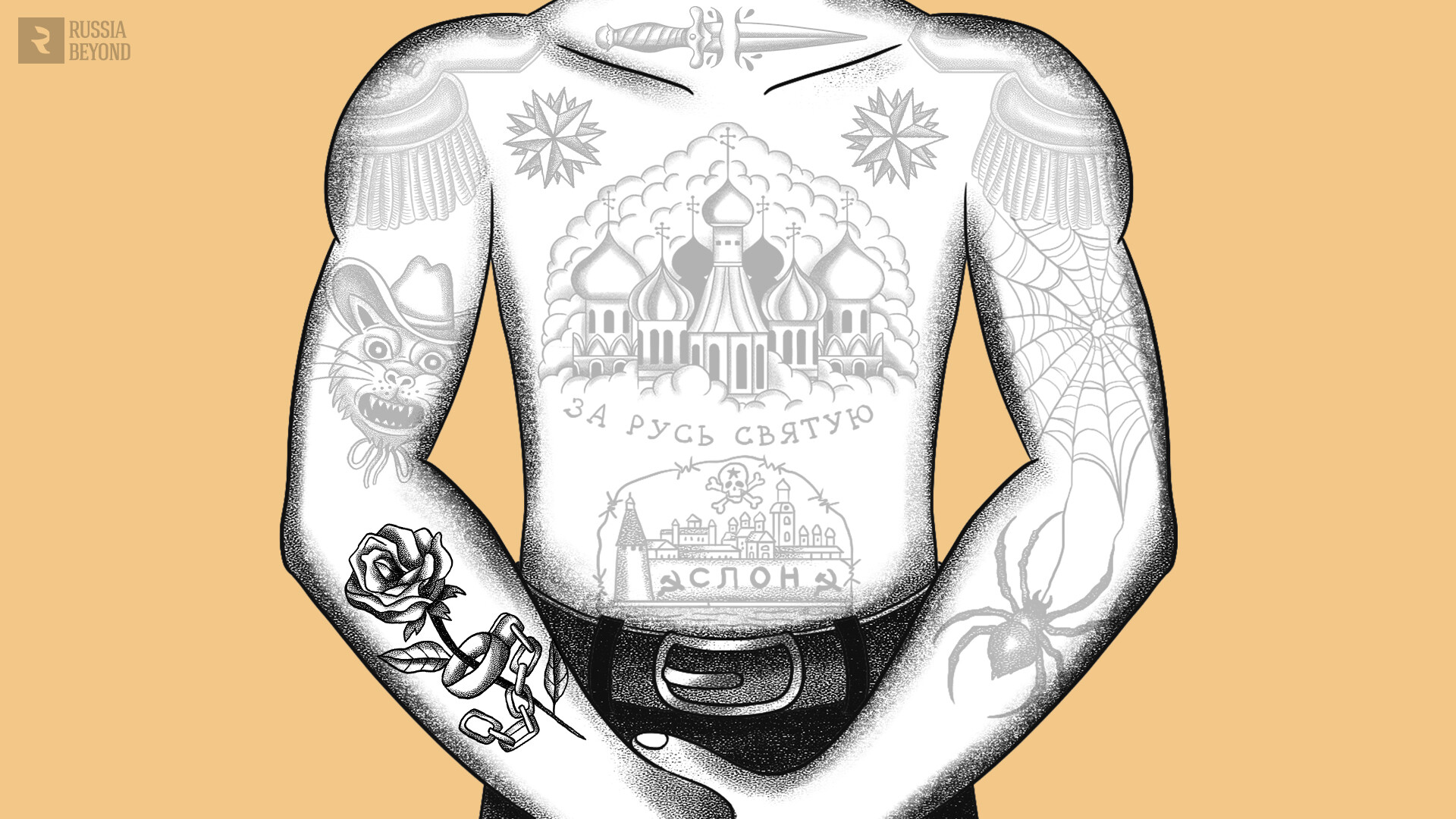
In the Russian criminal tattoo code, a rose is the symbol of a blighted youth. A tattoo of a rose wrapped in barbed wire means its owner was incarcerated before he came of age and became an adult in prison. It’s safe to assume those who bear this tattoo on their bodies served time in a juvenile detention facility.
5. A knife “stuck in the throat”
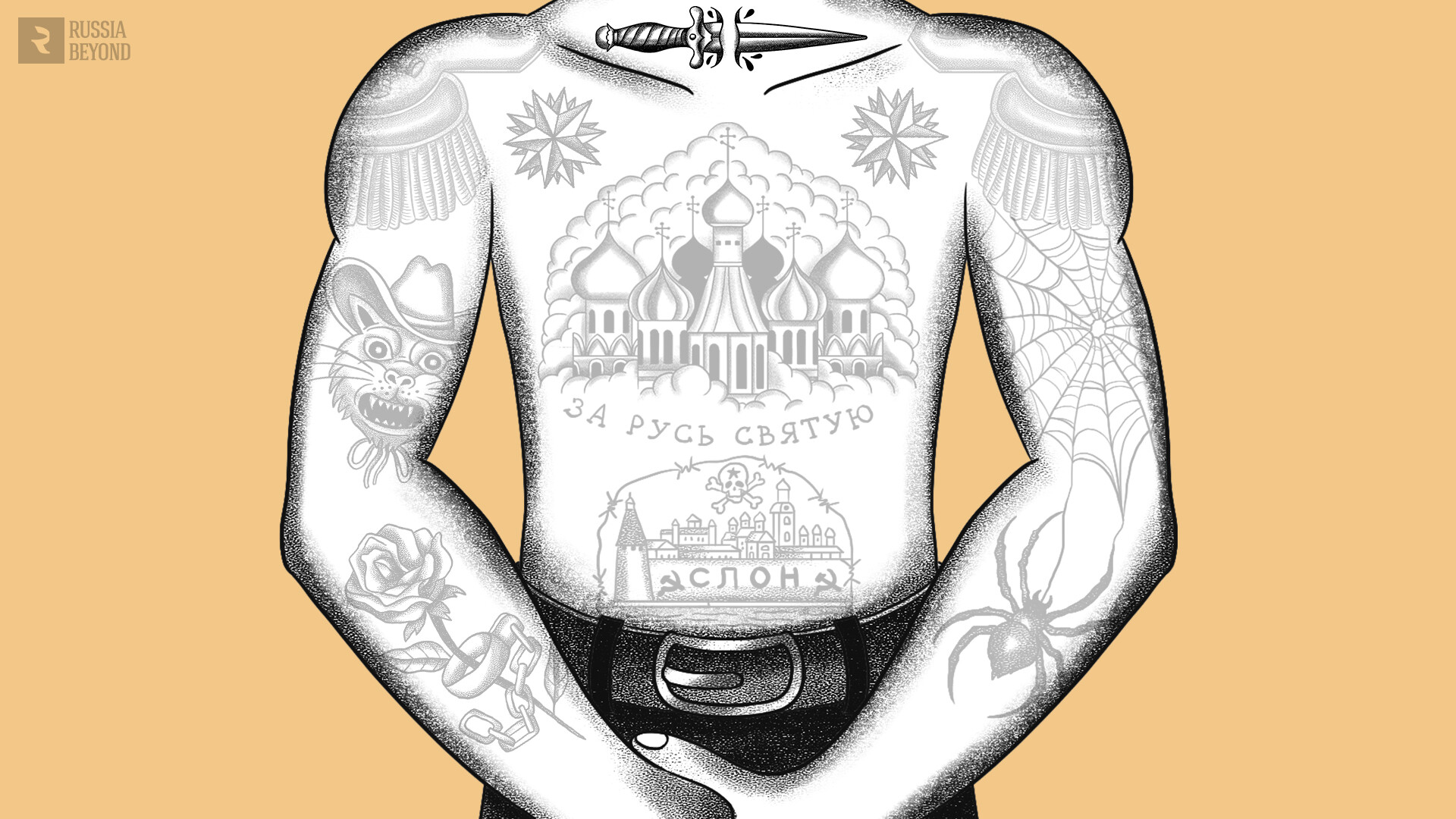
This tattoo tells everyone that the owner has stabbed a person in the past. Generally, this tattoo means that the person who has it is dangerous.
6. A bug
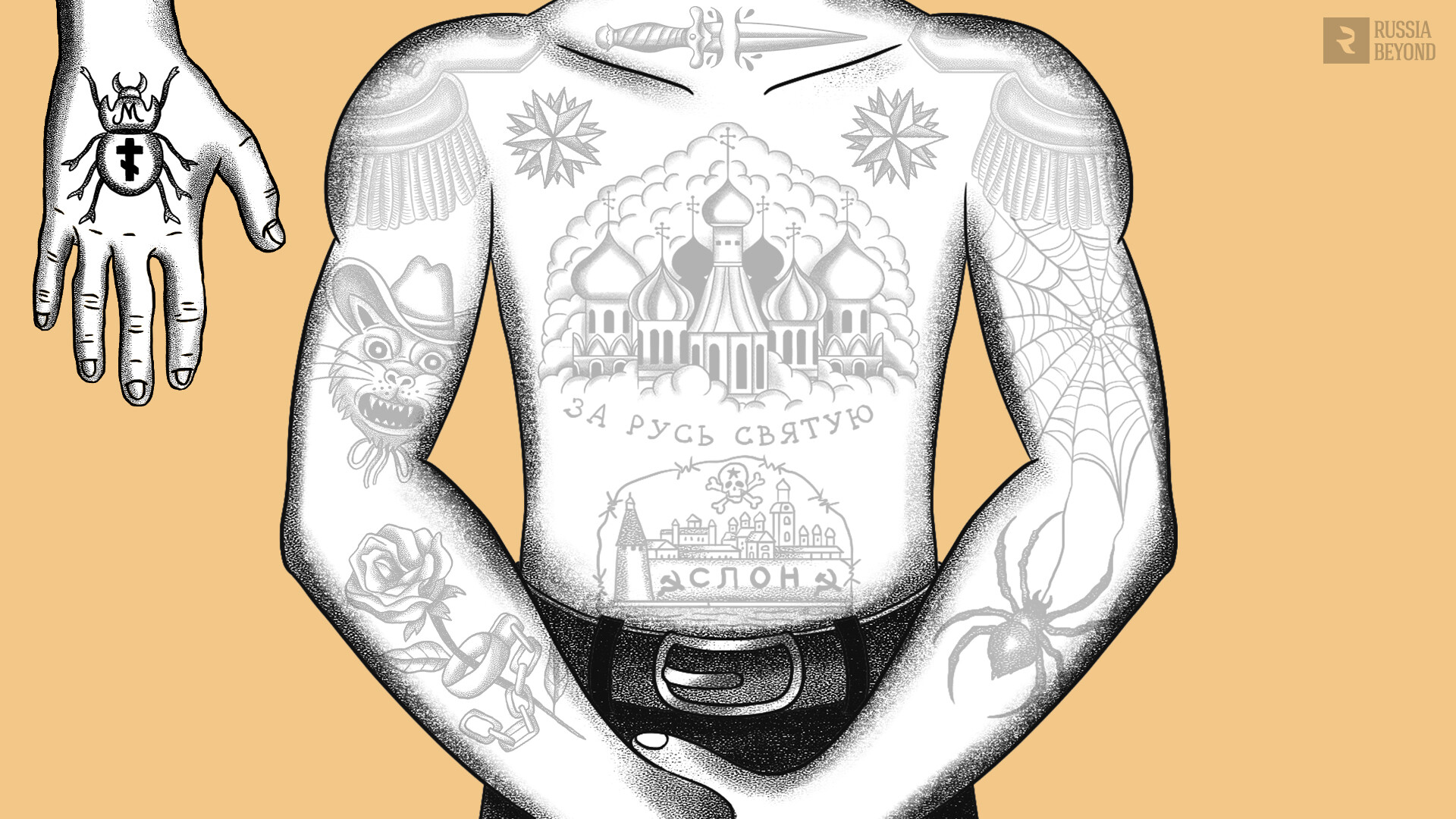
A bug is another symbol of pickpockets and thieves in Russia. In contrast to a cat, it is also a way to convey a message to fellow thieves that reads: “I wish you good luck stealing” (“Zhelayu udachnykh krazh”).
7. Stars
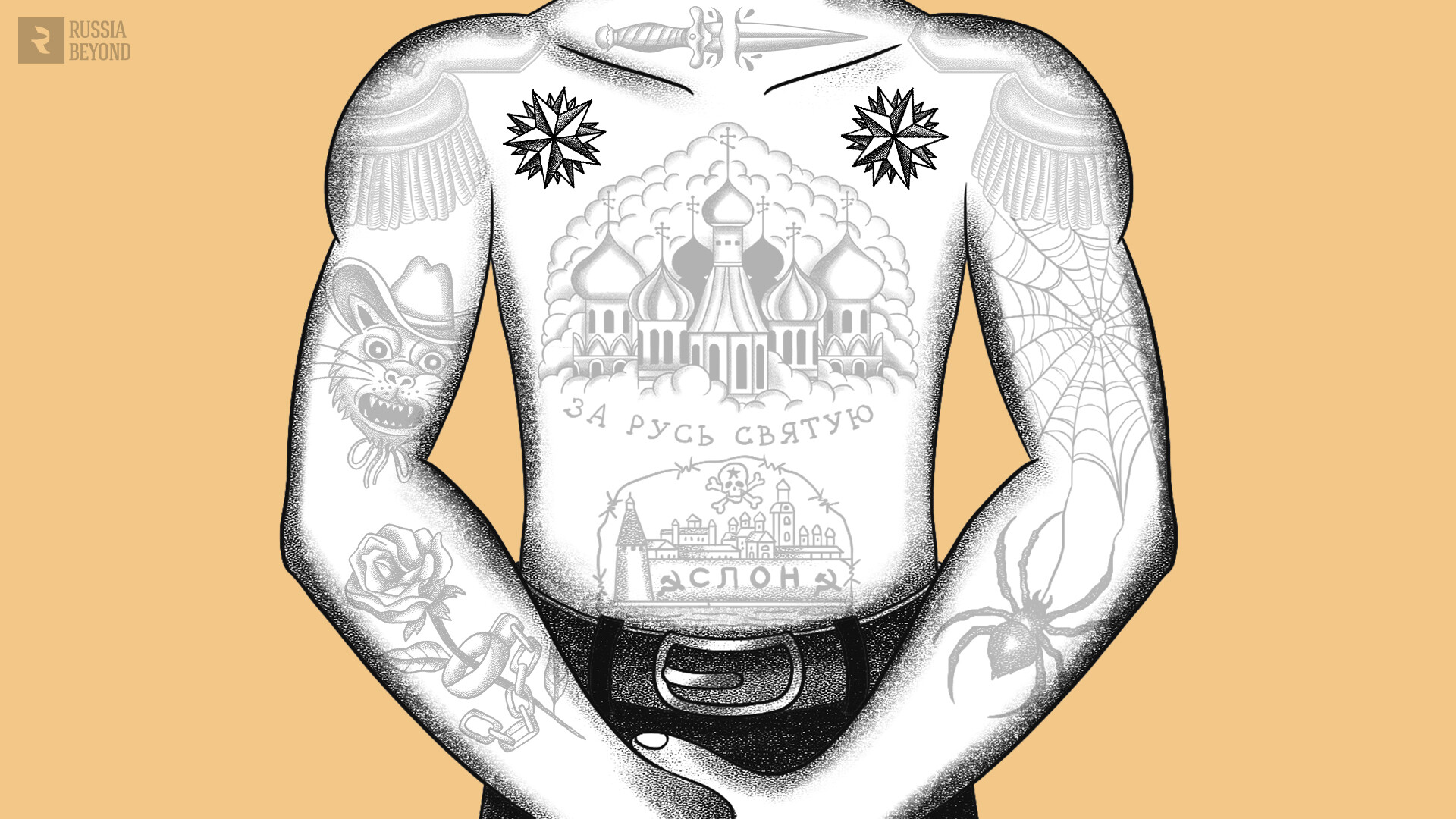
In general, stars, often more than a standard five-pointed star, are a symbol of freedom for Russian criminals. However, the meaning of this popular criminal tattoo varies depending on the part of the body it is placed on. Stars on the shoulders point at a thief-in-law; stars in the collarbone area convey a symbolic message that a criminal has been born free; while stars on the knees are a way to say that its owner will never accept the authority of the prison administration.
8. ‘SLON’
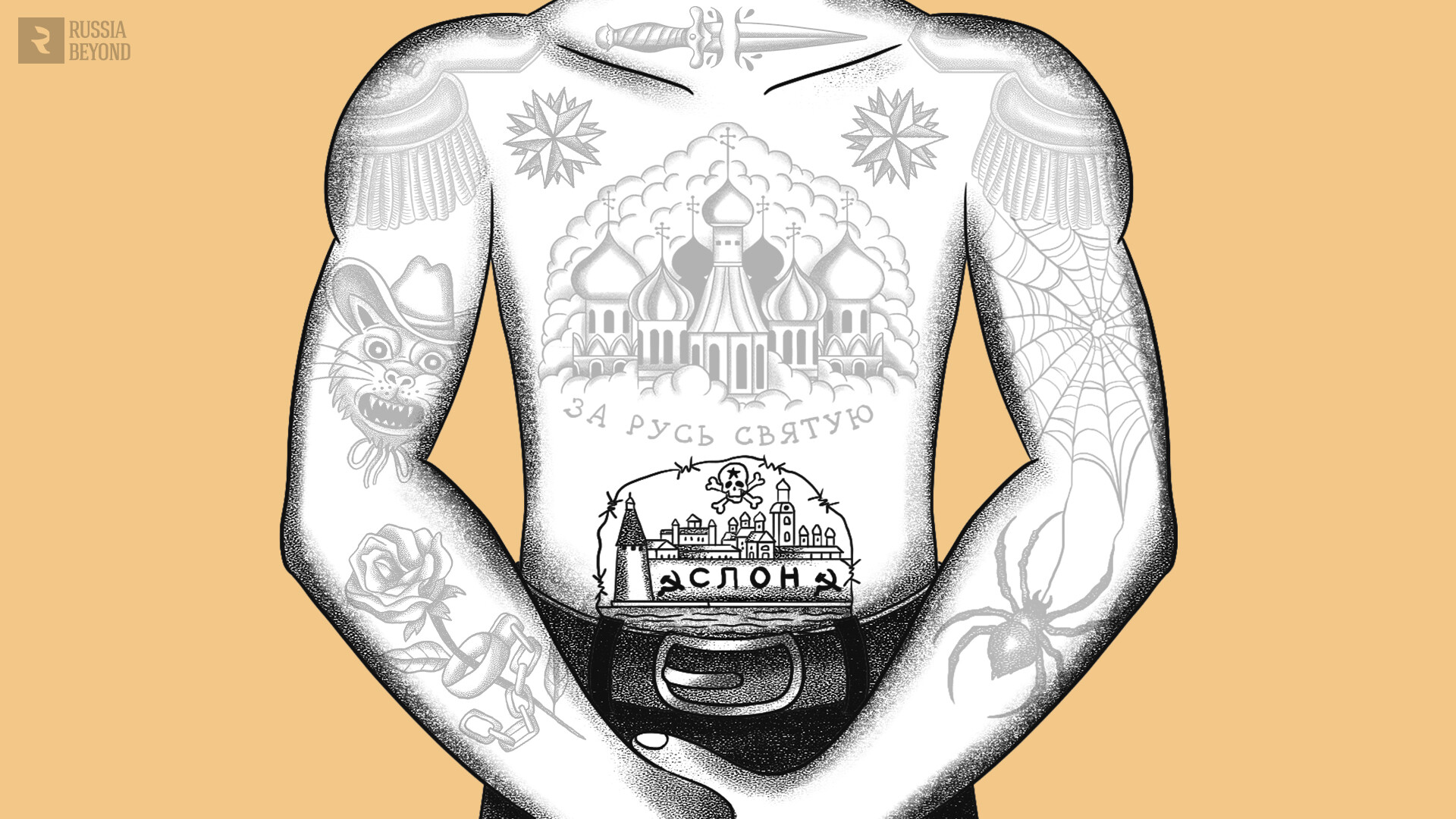
From the Russian language, the word ‘slon’ translates as ‘elephant’. However, in the Russian historical context, this world developed other meanings. For example, ‘SLON’ stands for ‘Solovki prison camp’, a notorious Soviet prison set up in 1923 on the Solovetsky Islands in the White Sea. As a prison tattoo, it later evolved to incorporate other meanings, too. Two of the most popular of them are: “Death by a knife to cops” (“Smert’ legavym ot nozha”) and “Nothing but misfortune from a young age” (“S malykh let odni neschastya”).
9. Finger rings
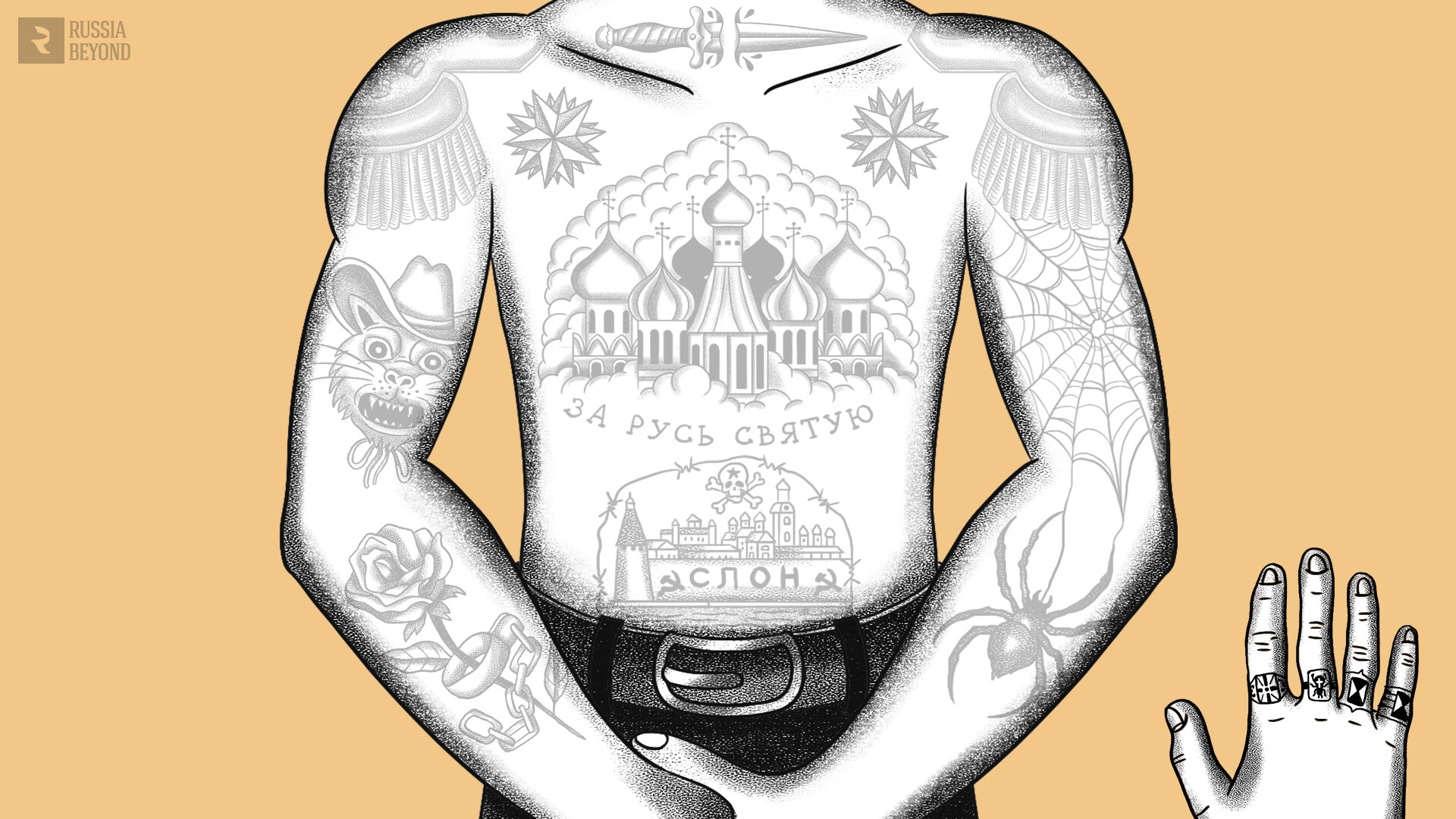
The Russian prison tattoo code has plenty of ring tattoos, as well, and all of them have their specific meanings. Only an experienced prison tattoo expert can quickly read all of the messages coded in rings tattooed on the fingers of inmates.
A certain ring design can suggest that a person rejects the authority of prison administration or that he is a hereditary thief who followed in his father’s footsteps or that he is convicted of murder or, alternatively, a ring can point out a particular prison caste that an inmate belongs to.
10. Epaulettes
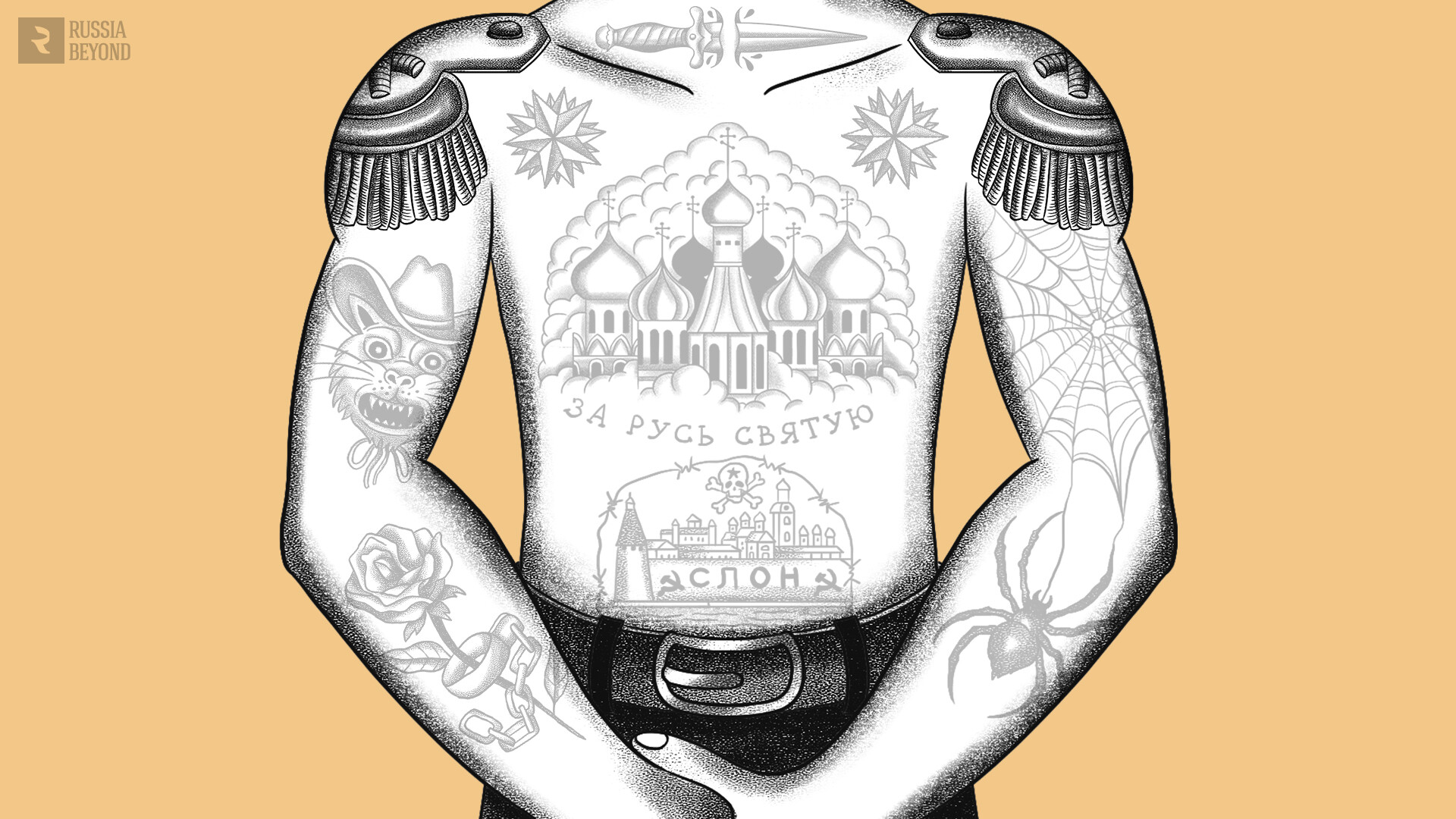
This is arguably one of the most hard-to-earn tattoos in the Russian criminal underworld. Only the most authoritative prisoners deserve to have epaulets tattooed on their shoulders, because this symbol has a clear cut meaning: a total rejection of redemption. This tattoo is a sign of the most respected and dangerous criminals. Oftentimes, the owners of epaulet tattoos come from maximum security prisons and, perhaps, they have a record of instigating or actively supporting a prison riot.

